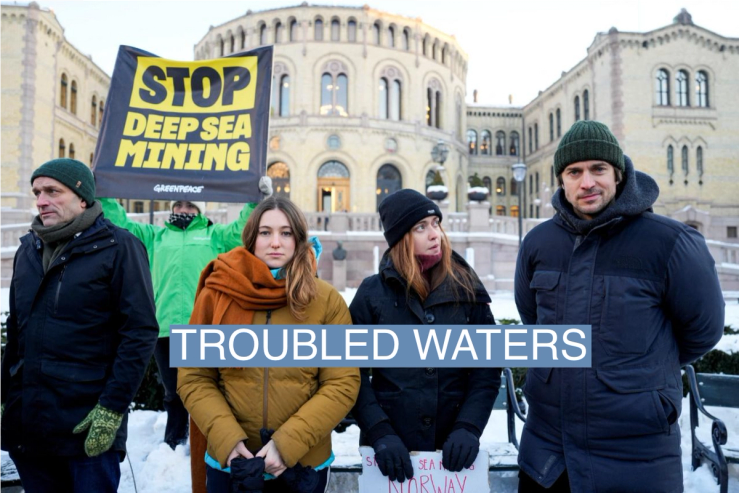The News
Norway has become the first country to allow for commercial-scale deep-sea mining. On Tuesday, the Norwegian Parliament approved a controversial plan to open up 280,000 square kilometers (108,000 sq miles) of Norway’s northern waters for potential mining.
The Norwegian government has assessed that there are millions of metric tons of copper, cobalt, zinc, and thousands of tons of rare earth minerals on the sea bed, estimated to have a value of almost $100 billion. The minerals could help foster Norway’s green industry as the country seeks to gradually phase out its oil and gas production, and provide key resources for the green transition.
Even so, the government has faced stiff opposition from climate organizations and parties to the left of Norway’s center-left governing coalition, who warned that the mining could be catastrophic for marine life.
SIGNALS
‘Embarrassing’ to see Oslo greenlight the destruction of the Arctic
Greenpeace said it was “embarrassing” to see Norway — a major oil exporter that nevertheless produces more than 70% of its electricity from renewable sources — try to position itself as a climate champion while approving “the destruction of Arctic waters.” The government itself was reportedly divided on the decision: The Ministry of Climate and Environment, as well as the Foreign Ministry and the Ministry of Trade, Industry, and Fisheries were skeptical of the decision, the financial newspaper Dagens Næringsliv reported. Researchers have warned that the climate consequences of mining are unclear and that more research is needed before any mining should begin. The government has defended itself by saying the area will be slowly and cautiously opened up and that companies will need to document how they plan to mine minerals while minimizing environmental damage.
Race for minerals reveals tension between green industry and environment
The tensions surrounding Norway’s deep-sea mining highlight a dilemma at the heart of the energy transition: “Production of minerals needed to build [electric vehicle] batteries and other clean tech entails its own unavoidable environmental risks,” Semafor’s Climate & Energy Editor Tim McDonnell wrote. Deep-sea mining could alleviate the need for even more harmful forms of onshore mining; a boom in nickel production in Indonesia, for example, is emerging as a major threat to that country’s rainforests. The Norwegian prime minister argued much the same to the Financial Times, saying that “if we neglect deep-sea minerals, we leave it to other countries for things we badly need, including for the green transition.” But it’s far from clear that these two forms of mining are mutually exclusive, given the global economy’s surging demand for minerals.



